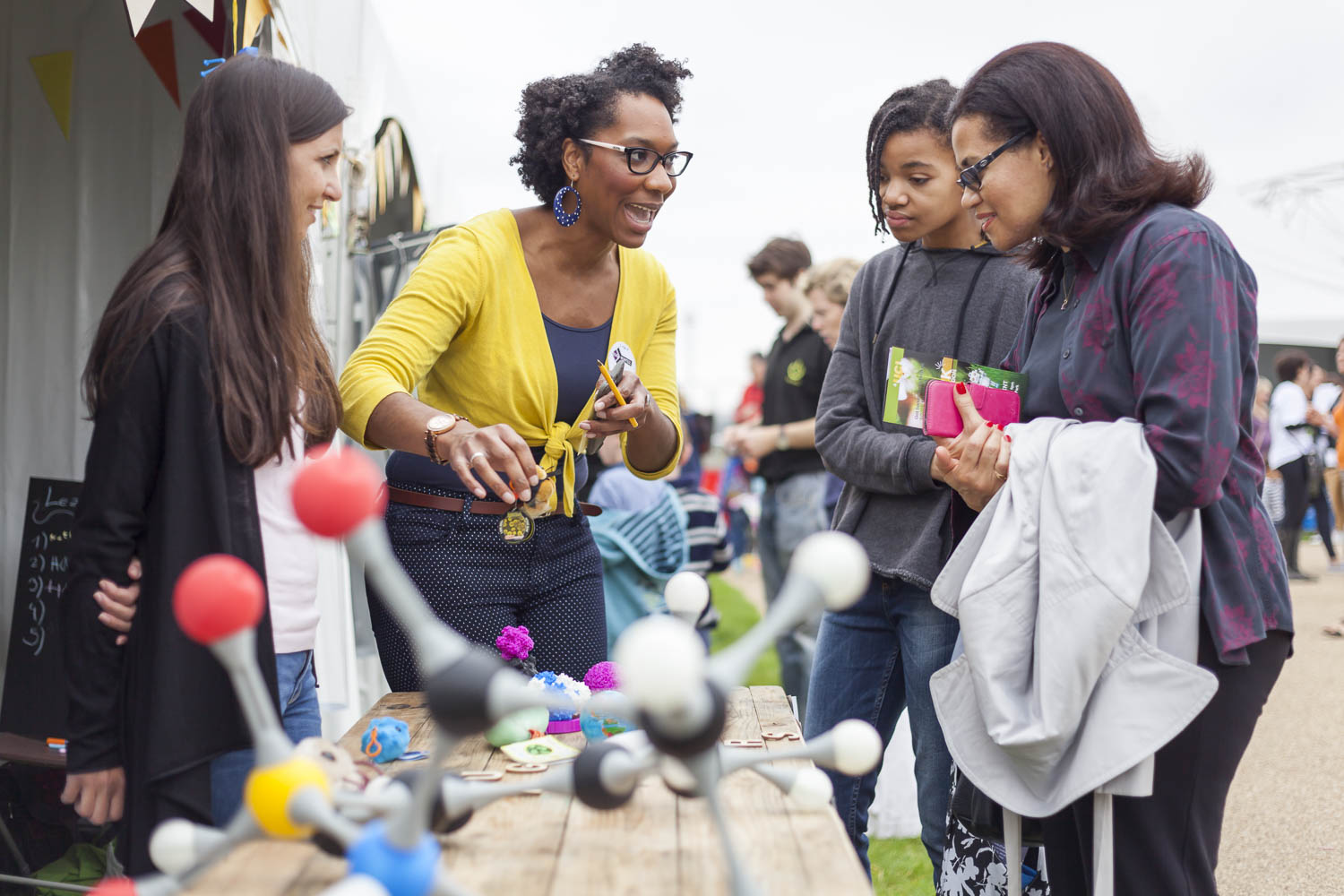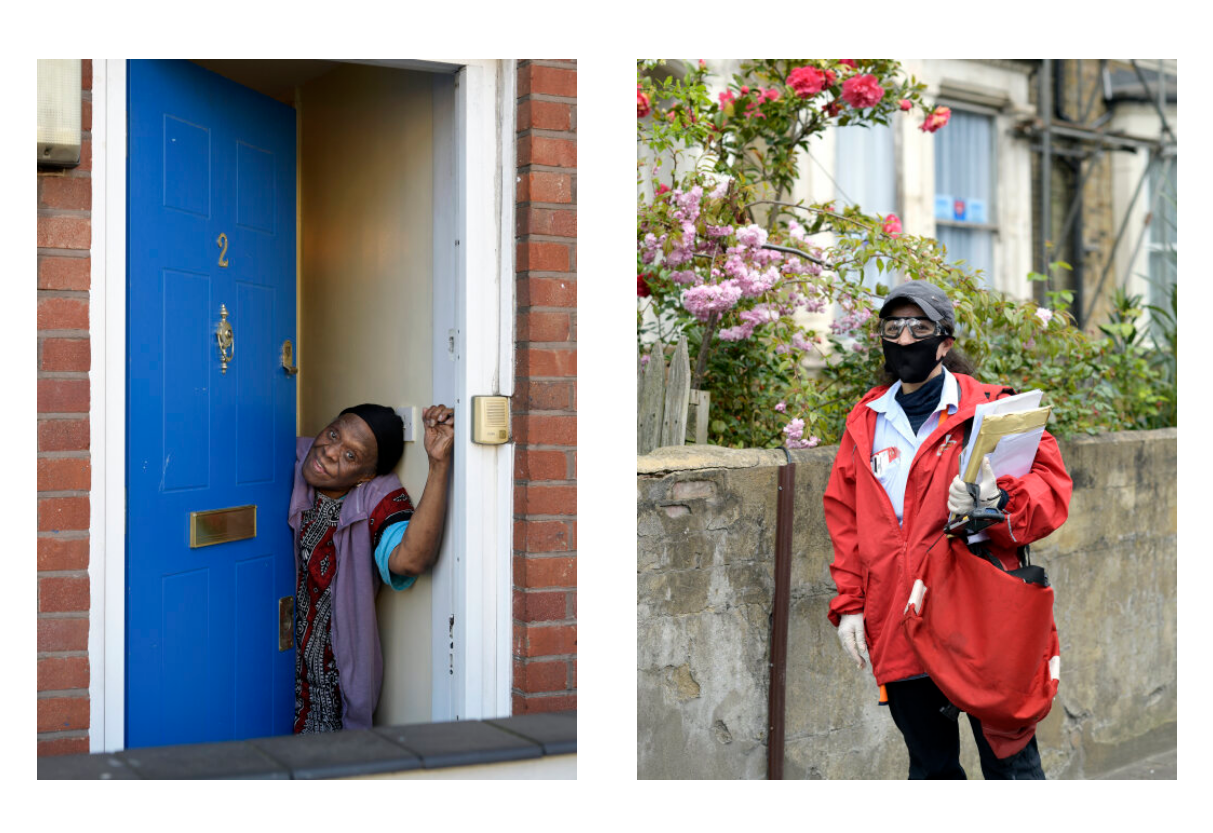The voluntary and community sector (VCS) has a crucial role to play in dealing with the immediate impact of COVID-19 - particularly for the most vulnerable in our communities - as well its longer-term effects. In turn, UCL has an important role to play in supporting the sector and a strong track record of work undertaken by academic and professional services staff and students to build on. The emergency has already shown that UCL staff and students are keen to continue to make a difference.
The principle aim of UCL Listen and Respond is to better connect VCS organisations with people and groups within UCL who are interested and able to provide support. There is also potential to work in partnership with Local Authorities around specific areas of advice and guidance. The work is designed to fully align with UCL’s commitment to being a publicly engaged university, to making a difference to London and Londoners, and to the vision for UCL East.
Thus far, we have been working closely with our community partners, particularly those in Camden and Newham around our current and future campuses, to scope their needs. This is what they told us:
- Research; to help VCS organisations understand and respond to clients’ changing needs and circumstances.
- Policy; empowering VCS organisations to both influence and access emerging policy.
- Evaluation; VCS organisations need support in reflecting on and learning from rapid reconfiguration of services and resources.
- Development of virtual educational and engagement practice and content to meet clients’ needs.
- Infrastructure support; for fundraising and organisational strength and sustainability, IT, HR and transition planning.
- Physical resources; space, digital hardware, food.
- Network and capacity building; how to maximise and mobilise resources across VCS organisations and communities.
As part of this work we have funded a series of projects connecting UCL staff and students with community organisations, around an identified issue resulting from Covid-19. These rapid reponse projects have been made available with funding from UCL Culture, UCL East and Innovation and Enterprise. Read more about the successful projects below:
- Emily Emmott (Anthropology) and Gnome House
Due to COVID-19, much of the community activities surrounding Waltham Forest based community centre, Gnome House, have been cancelled. While some have been transferred online, this creates accessibility issues (online events can be challenging for households with no Wi-Fi, or little or no access to hardware). Households in the area have been isolated, with very little opportunity to come together in groups. Furthermore with social distancing measures set to continue for at least the next 12 months indoor community activities are likely to be restricted. This project will work with a group of local stakeholders to develop a community garden that will create a safe outdoor space for the local community to use. Led by a culturally diverse working group with representatives for older people, those with mental health needs, access and mobility needs, and young people, the garden will constantly strive to fully represent the community it serves. The project will also develop a young person’s steering group to ensure the design and development of the garden meets the needs of local young people.
- Chris Harker (Institute of Gobal Prosperity) and Money A+E
The project will assess how, Money Advice and Education (Money A+E), an organisation that was created to empower disadvantaged groups and Diverse Ethnic Communities through financial advice and education are addressing the disproportionate impact of Covid-19 on BAME communities. The team will seek to track the immediate coping mechanisms established by Money A+E during the crisis, understand how this situation is impacting their users’ livelihoods and finances and codify how their service users are developing longer term visions for recovery, renewal and inclusive prosperity.
IGP is involved in a 3-year collaboration with Money A+E to explore the links between prosperity, race and finance as a lived experience. Read more about the collaboration and the associated working paper.
- Jay Derrick (Institute of Education) and self-employed creative practitioners in east London
SOLO: Surviving or Thriving?
The East End boroughs of London are the base for very many self-employed and sole-trader artists and craftworkers, whose work has been particularly disrupted by the COVID-19 pandemic. They are typically focussed on developing the quality of their work and contributing to the community’s quality of life, as well as to earn an income. This group plays a key role in the uniqueness of the area, and in its developing economy.
This project will investigate the way the pandemic has impacted on this group, throwing light on changes they have made in their work and what they have learned.Read more about the project including the full report of what happened.
- Duncan Hay, Leah Lovett (Centre for Advanced Spatial Analysis) and OneNewham
Measures implemented to tackle the global pandemic have disrupted the lives of children and young people across the UK affecting access to education and extra-curricular activities, impacted childcare arrangements for working families, and increased the risk of social isolation. Such challenges to health, social and economic stability pose a greater risk for the 52% of children already living in poverty in Newham and for the parents looking to access support. In partnership with OneNewham, a Newham-based partnership network for the voluntary and community sector, researchers from UCL CASA will work with young people (16-25) living in the borough to create a map of activities and services for families, children and young people in Newham. CASA will build the site and deliver training for the young people to enable the map to be developed and maintained.
The young people will be asked to commit to the project for 2 weeks in total, to assist with collating and uploading information to the site. The map will be colour coded by categories such as age group, service type (e.g. children’s centres, support groups) and activity (e.g. arts, sports, etc.) for easier searching. The map will be a valuable resource for young people and families across Newham and the young people involved will develop a range of skills.
- Oliver Peachey (Students Union Volunteering Service) and Aspierations, PoplarHARCA, Anna Fiorentini Theatre and Film School, Opening Doors London, One Housing Group.
In partnership with a range of Voluntary and Community Sector organisations the UCL Students Union Volunteering Service will plan and deliver a range of virtual 'social hackathons'.
Each organisation involved (Aspierations, PoplarHARCA, Anna Fiorentini Theatre and Film School, Opening Doors London, One Housing Group) will pitch an ‘issue’ to a group of 15 UCL staff and students. The cohort will then work together to come up with a solution to that issue and will have £1,000 to spend to implement an action. This will be led by the VCS organisations and will directly respond to issues they or their service users are experiencing as a result of Covid-19 and lockdown guidelines. Watch more about the events below:
YouTube Widget Placeholderhttps://youtu.be/RNGev2XiRrk
- Cae Wilson (Anthropology) and Karolina Racyzynski
In an unprecedented move, the London borough of Tower Hamlets closed Victoria Park to all visitors for two weeks in April. The park is now re-opened, with extensive restrictions on permitted activities. In an era of lockdown, in a borough which has suffered severe issues of overcrowded housing and poverty, and in which a large percentage of the population live in high-rise blocks, the importance of the park is highlighted more than ever. This project, following the announcement of the gradual ease of lockdown will explore safely re-rooting ourselves into a ‘new normal’. With the aim to collate a diverse range of perspectives of the park and community, participants will be invited to explore different roots and routes of the park with the creative guidance of an artist filmmaker and the expertise of an anthropologist/park ranger. What connects the participant to the park? What routes do they make around the park? What can we learn from a park re-opening during/following a major world-wide pandemic? These questions will be explored by conducting interviews and gathering videos (smartphone footage, GoPro camera), written descriptions and found objects. The collection of the audio visual material will be made up of guides and reflections centred around the meaning of the park as a site of routes/roots. It will contribute to an art installation comprising of video/film and sound materials that will respond physically to a space within the park (e.g. possibly using digital projections or sound interventions using the tannoy system if accessible).
- Sam Fardghassemi (Computer Science), Professor Helene Joffe (PALS), Dr Gemma Moore(IEDE) and Syrup (Emily Briselden-Waters & Grace Crannis)
Connecting Spaces: East. This project will explore how loneliness both isolates people and contributes to poor health and wellbeing in young people. This project aims to reflect on UCL research in east London collected before the global pandemic and question how our current circumstances have impacted young people in this area, especially in their interactions with their local neighbourhoods (i.e. parks, public spaces, homes, streets etc.). The process of this project will also focus on the collaborative potential for artists and researchers to work together and learn from one another. Exploring this subject from both scientific analysis and a creative mindset, the project will document these opportunities for knowledge exchange.
See the outcomes from the project on the Syrup Website: Connecting Spaces: East.
- Hannah Sender( Institute of Global Prosperity) and Hackney Quest, The Plug.
Fuse: Empowering young people to engage local businesses in Hackney to co-design solutions for youth underemployment
Fuse is a co-design project led by youth design agency The Plug, Hackney Quest youth charity and the Institute for Global Prosperity at UCL. Fuse responds to the complex challenges young people growing up in Hackney face to achieve their aspirations in a context of widening inequalities and COVID-19 economic failure.
UCL Listen and Respond supports mid- to late-adolescents employed on Fuse, to engage local businesses in a research workshop. It funds their training run by Fuse’s partner LivingMaps with support from UCL Urban Lab. The training session introduces young designers in mapping and interview skills. They will apply these skills in their own youth-led workshop with local business owners. The workshop will explore local businesses’ aspirations for working with local young people, barriers to doing so, and their practices for overcoming those barriers.
This innovative partnership includes the London Legacy Development Corporation (LLDC), and will support the actual implementation of research and design. It will deliver a second iteration of the Youth Prosperity model, which can be used to monitor Fuse and other programmes which focus on, or involve, young people. It will also deliver insights which support the design and delivery of LLDC’s programmes and services, in a way which genuinely supports young people’s prosperity.
- Leah Lovett (Centre for Advanced Spatial Analysis) and Nisha Duggal
Impossible Architecture.
This project uses 3d capture technology to reimagine social isolation and distancing in relation to Covid-19 and the home. Taking the idea of ‘home’ as both physical boundary and metaphorical refuge, Leah and artist Nisha Duggal will collaborate with east London communities, enabling them to capture their personal living spaces. The project will explore how social distancing measures have changed the way families and friends connect. The near-global ‘lockdown’ has led to an unprecedented shrinking and expansion of space, as people are confined in their homes together and as households move from meeting in physical to digital space via video calls and social media. Using the readily available camera technology on their smartphones, collaborators will document and share images of their living spaces over time. With point cloud and VR technologies, we will then ‘stitch’ the contributions together to construct new virtual, meeting spaces. The project will capture and stitch together 6 dwelling spaces, working with a small circle of east London families.
- Haidy Geismar, Alison Macdonald (Anthropology) and St. Pauls Way School
This project will build on the success of UCL Anthropology's 'Young Curator' project and develop an online short course that will be aligned with curriculum across A-levels in Humanities (history, geography, English) and Social Sciences (sociology). The course will focus on developing independent research skills and learning how to use online collections and archives to undertake research. A-level students will also be encouraged to develop their critical engagement with these resources, to examine not just what is present in the archival record but what is absent. They will be trained in oral history techniques in order to connect their own lives and histories to the formal record. The project will end with the opportunity to participate in the Museum of Covid-19 an online crowd-sourced collection of young people’s experience of Coronavirus. Over the summer we will work with student consultants from St Pauls School asking them to take the course and then feedback how it worked in order to ensure that it is effective and accessible. Students will be therefore able to develop their research skills but also be activated within the pedagogical process. Participating students will also have the opportunity to be mentored by students and staff at UCL towards their own applications to university. Once the materials have been developed the materials in consultation with these students, the team will launch the course for all schools through a social media campaign that will focus in particular on east London.
- Exploring partnerships with Kentish Town Community Centre
Kentish Town Community Centre (KTCC) are working with a number of academics at UCL around their projects providing food to Camden residents local to the community centre during covid-19. This work includes helping to evaluate KTCC's 'Happiness Hampers' project, which provides local food hampers to local families who are struggling to afford or access food during lockdown. The project will also explore the potential for ongoing collaboration around issues exploring both Universal Basic Services, and the potential of connecting with UCL teaching.
In addition to this the Listen and Respond initiative is undertaking two pilot projects to explore how we can continue to meet the needs of our local communities beyond lockdown.
Listen and Respond Matching Platform.
Our rapid response funding has shown what a great desire there is for UCL staff and students and community organisations and individuals to work together to tackle the issues arising from Covid-19. To catalyse this activity, the Listen and Respond team have developed a platform where requests and/or offers of support can be posted. During the Matching Platform pilot phase, the Listen and Respond team will also do its best to connect relevant people and facilitate greater community-university partnership working. The platform will launch in early August. Please watch this space for more information or contact listen-and-respond@ucl.ac.uk for more information.
Rapid Evaluation Advice and Learning Service with Camden Council.
At the onset of the Covid-19 lockdown, Camden Council were required to re-engineer almost all of their key services, from child support to business growth, within a matter of days. As a consequence the local authority has identified a need to monitor, evaluate and learn from their performance, and has sought out advice and expertise from UCL. This pilot project is exploring how the skills and expertise of UCL staff and students can be utilised to support Camden Council to reflect on and evaluate their service delivery during the Covid-19 outbreak, and to use this learning to inform future service delivery to local people. For more information visit the REAL Service webpage.
In the meantime, if you have any questions or would like further information, please email us.
 Close
Close




